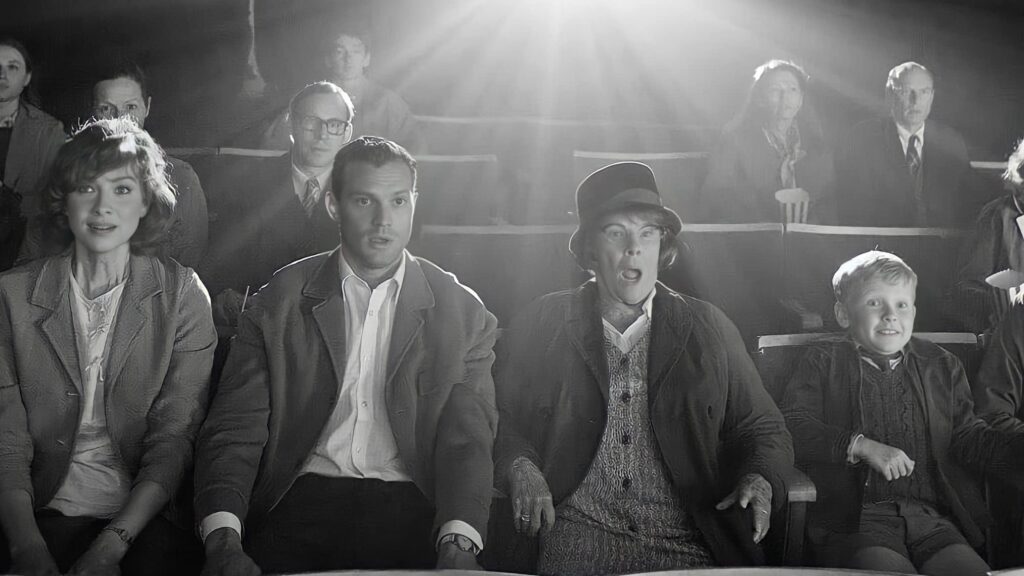U.S. critics have said that Kenneth Branagh’s Belfast is a movie that “would benefit from subtitles”.

Kenneth Brannagh’s long-awaited autobiographical film Belfast is due for release in November this year.
Although it’s tipped to be a favourite at the Oscars, locals fear it could end up in the ‘foreign language’ category as Hollywood reviewers struggle to understand the Northern Irish accent.
Reviewers from the United States hub of the silver screen praised the film’s storytelling and acting. However, they complained that the Northern Irish accent was too difficult to understand.
A story of life in Belfast – the tension of the 1960s

Kenneth Branagh’s Belfast tells a semi-autobiographical tale of life growing up in Northern Ireland’s capital.
Starring big names, including Jamie Dornan, Judi Dench, Ciarán Hinds, and Caitriona Balfe, the black and white feature takes us back to 1960s Belfast.
Following the tale of a working-class family caught up in the mayhem of Belfast in the tumultuous late 1960s, Belfast will take many back to what life was like in the city almost 60 years ago.
Belfast shows a family struggling with the decision to leave Northern Ireland to ensure their family’s safety. However, this would mean leaving behind their beloved grandparents. Thus, the movie tells a story of family turmoil with the Troubles as the backdrop.
The incomprehensible accent in Branagh’s Belfast – the thick Northern Irish brogue

After a pre-release glimpse at Branagh’s Belfast, Hollywood reviewers have tipped the film for glory at the 2022 Oscars.
They praised the “well-drawn and beautifully played characters”, particularly young Jude Hill, who plays nine-year-old Buddy.
Reviewers lauded the young lad as a “marvellous camera subject”. However, they went on to complain that “he also speaks in a thick Irish brogue that is not always easy for American ears to comprehend.”
They continued, stating that some of the other actors are “equally difficult to understand”.
Branagh was ‘spared’ of the Northern Irish accent – we’re offended

Another critic for Variety magazine began their review of Branagh’s Belfast by stating that they never knew “one of Britain’s greatest living actors… had been born in Northern Ireland”.
“Maybe,” they continued, “that’s because his family got out and moved to Reading, England, when he was nine years old, just as the Troubles were coming to a boil, which spared him the accent.”
Personally, we think it’s a shame that one of Northern Ireland’s biggest actors lost his local accent. But it seems American audiences would disagree.
The local reaction – defending the Northern Irish accent

If you’ve grown up in an Irish family, you may know our tendency to defend what is ours. We can say whatever we want about our kin, but as soon as anyone else does, it’s game over.
That same affliction has rung pretty much true for the local backlash to the U.S. reviews of Branagh’s Belfast.
Maureen Coleman, a journalist for the Belfast Telegraph, said, “Our accents, no matter how strong or pronounced, are nothing to be ashamed of. They are part of us; they tell the tale of where we’re from.
“To dress the accent up or to slow down the speech just to make it easier for the American audience to understand would have been an insult to the people his film, Belfast, seeks to portray.”
County Antrim screenwriter Ewen Glass was equally as offended by the remarks by Hollywood critics. He said, “To adulterate such a personal story by using more middle-class or posh accents would have been to do it a great disservice.
“Hollywood is not au fait with working-class accents, but it should be. It’s exposed to lots of different accents and, I dare say, would understand a posh Irish accent easily enough.”

